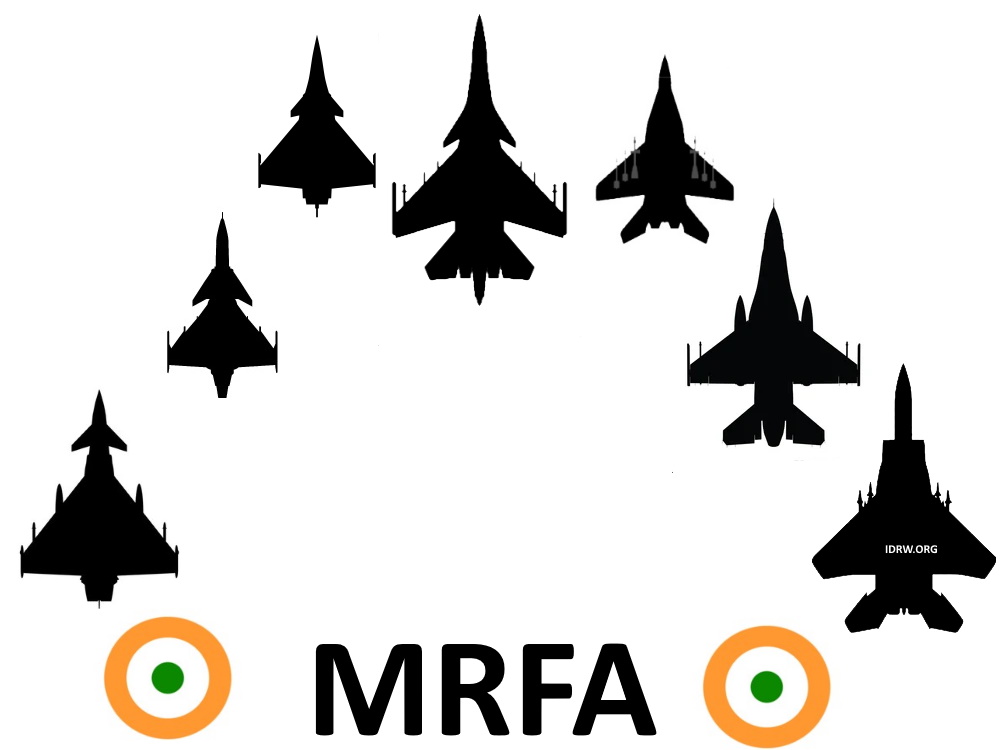SOURCE: AFI

Countries across the globe are facing significant challenges in producing fighter jets due to disruptions in the global supply chain. The ripple effect of these disruptions, caused by the pandemic, geopolitical tensions, and material shortages, has slowed down production timelines, impacting major aerospace manufacturers. India’s ambitious Multi-Role Fighter Aircraft (MRFA) tender, which involves acquiring 114 fighter jets for the Indian Air Force (IAF), is now at risk of delays as the supply chain issues affecting the global aerospace industry could prolong the acquisition of imported jets.
Supply chain challenges are plaguing almost every country that produces fighter jets. Global aerospace giants such as the U.S.’s Lockheed Martin, France’s Dassault Aviation, Sweden’s Saab, and the UK’s BAE Systems, among others, have reported delays in the production of fighter jets due to several key factors
Fighter jets rely on complex systems with thousands of parts, many of which are sourced from specialized suppliers. Disruptions in the production of critical components such as microelectronics, sensors, and semiconductors have slowed down assembly lines. These shortages are primarily due to the global chip crisis, which has been exacerbated by a surge in demand and limited production capacity.
The production of advanced aerospace materials, including titanium, composites, and specialized alloys, has also been disrupted. Titanium, a crucial metal for aerospace manufacturing, has been impacted by the ongoing Russia-Ukraine conflict, as Russia is one of the leading suppliers of titanium. Sanctions and reduced exports have tightened the global supply of this critical metal, affecting aircraft production.
The pandemic caused significant disruptions to the global workforce, particularly in highly skilled industries such as aerospace. Many companies continue to struggle with a shortage of skilled labor required for the assembly and production of sophisticated fighter jet components. This shortage is causing production bottlenecks, slowing down the delivery of jets to customers.
Global shipping and transportation networks have not fully recovered from the pandemic-induced disruptions. Delays in shipping essential components and raw materials, coupled with higher transportation costs, are further complicating aerospace manufacturing timelines.
India’s MRFA tender, which aims to replace the aging fleet of IAF jets, is heavily reliant on the acquisition of foreign fighter jets. With contenders such as the Dassault Rafale, Boeing F/A-18 Super Hornet, Lockheed Martin’s F-21 (a modified F-16), and Saab’s Gripen-E in the race, these delays could significantly affect the Indian Air Force’s plans.
The IAF’s MRFA project is seen as critical to ensuring India’s air superiority, but the reliance on imported jets from aerospace majors means that any delay in their production timelines will have a direct impact on India’s defense preparedness. The global supply chain issues are expected to cause longer delivery times for aircraft, stretching out the timeline for the finalization and execution of the MRFA deal.
Major aerospace manufacturers involved in the MRFA tender are grappling with serious production issues:
Saab (Sweden): Saab’s Gripen-E production has been similarly affected by shortages of critical electronic components and sensors. The company has indicated that longer delivery timelines may result if the supply chain is not stabilized soon.
Dassault Aviation (France): While Dassault was successful in delivering the Rafale jets to the IAF under a previous agreement, the company has warned of potential delays in future orders due to supply chain constraints. Component shortages, particularly in avionics and electronics, have affected Dassault’s production lines.
Lockheed Martin (United States): Lockheed Martin has been hit by delays in semiconductor supplies, which are critical to the avionics and radar systems used in fighter jets like the F-21. The company has warned that fighter jet production could slow further if supply chain issues persist.
Boeing (United States): Boeing, another contender in the MRFA with its F/A-18 Super Hornet, has also faced delays due to material shortages, especially in metals and composite materials used in the construction of fighter jet airframes. Labor shortages and logistical hurdles are adding to Boeing’s production woes.
The MRFA tender process, which is already lengthy, may be further delayed as the IAF waits for clarity on delivery schedules from foreign manufacturers. Any delay in the production of jets could push back the induction of new aircraft into the IAF fleet, leaving India vulnerable with its aging fleet of jets.
Supply chain issues often lead to cost overruns, as manufacturers face increased costs for raw materials, transportation, and labor. This could lead to a higher price tag for the MRFA jets, potentially affecting India’s defense budget.
Delays in the MRFA procurement could leave gaps in the IAF’s operational capability, especially as regional threats increase. The delay in acquiring modern jets could affect India’s air combat readiness and limit its ability to maintain air superiority in potential conflict scenarios.
Given the global uncertainty surrounding the production of imported fighter jets, India may need to look at boosting its own indigenous production capabilities. The country has already made strides with platforms like the HAL Tejas and the upcoming Advanced Medium Combat Aircraft (AMCA), which are being developed domestically.